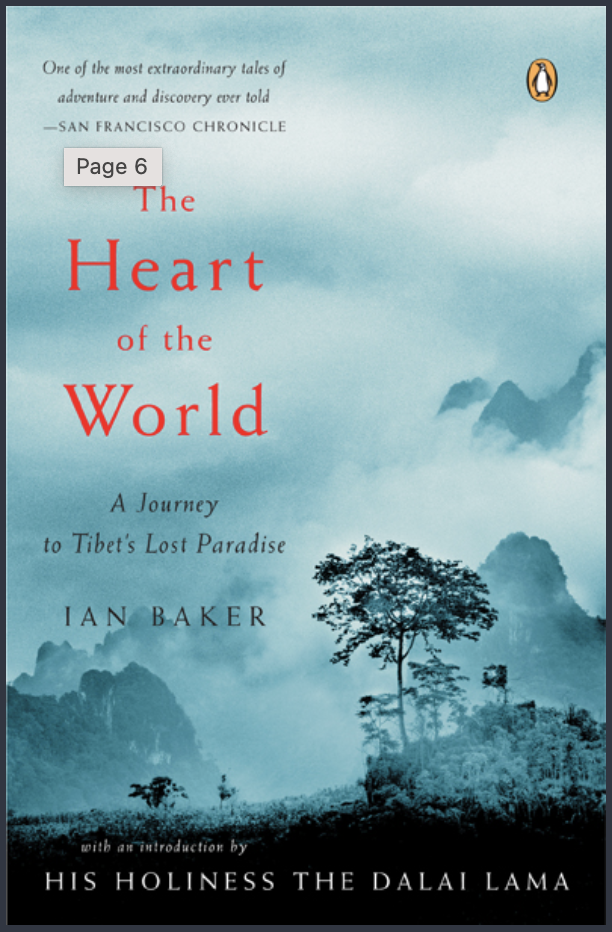
I read the pdf version of the book, but here’s the cover.
“How we view the world is a strange alchemy of cultural conditioning and personal choice. One could cautiously avoid all geomorphic speculations or, like the Tibetans, allow the configurations of rock and water to guide one into more exalted thoughts and alternate ways of seeing. As the Victorian poet Robert Browning wrote: “…a man’s reach should exceed his grasp. Or what’s a heaven for?” – The Heart of the World by Ian Baker
I spent the last couple of days stealing bits of time here and there to finish reading ‘The Heart of the World’ by Ian Baker. The book was on my radar for a while and was happy when my book club decided to read it.
‘The Heart of the World’ is really really long, but well written. I felt the book took time to gain momentum. It’s also challenging if you’re unfamiliar with the setting or the cultural context, because it makes it difficult to get immersed in the story.
I admit I hadn’t finished the book by the time the book club meeting happened. But I’m glad I attended the meeting because I read the remainder of the book more intentionally.